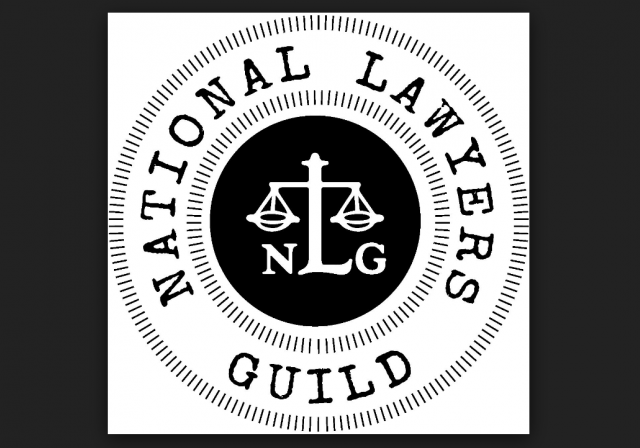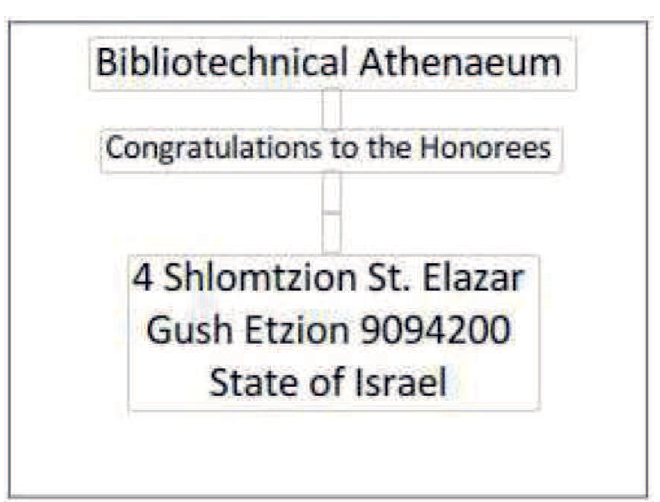Court: National origin (Israeli) discrimination claim against National Lawyers Guild can go forward

The National Lawyers Guild is a left-wing lawyer organization that, among other things, actively provides legal advocacy in support of the Boycott, Divestment and Sanctions (BDS) movement. NLG also advocates against Israel on a variety of international issues.
NLG is a “proud member” of the U.S. Campaign to End the Israeli Occupation (since rebranded as U.S. Campaign for Palestinian Rights), the group that is so toxically anti-Israel that not a single congressman or congresswoman would sponsor its intended Capitol Hill event.
In July 2016, the National Lawyers Guild, Inc. and the National Lawyers Guild Foundation, Inc.(collectively, “NLG”) were sued by Bibliotechnical Athenaeum, an Israeli company.
The lawsuit alleges that NLG refused to accept an advertisement from Bibliotechnical to be placed in an NLG Dinner Journal for an event. Bibliotechnical alleged that the ad was rejected because Bibliotechnical is an Israeli company.
The Complaint alleged this refusal constituted discrimination on the basis of national origin in public accommodations under New York City Human Rights Law Section 8-102 and The New York Executive Law Section 292(1).
NLG moved to dismiss the complaint, to strike certain paragraphs, and to disqualify plaintiff’s counsel, David Abrams, because he was a necessary witness in the case. Among other things, NLG argued it would violate its First Amendment rights to force it to run Bibliotechnical’s advertisement, and that the Dinner event was not a public accommodation subject to the anti-discrimination laws cited in the Complaint.
On March 30, 2017, the NY State Supreme Court in Manhattan denied in substantial part the motion to dismiss. [Note: In NY State, the “Supreme Court” is the trial court, the highest court is the Court of Appeals. So this was a trial court decision.] We examined that decision in Court: Discrimination case by Israeli company against National Lawyers Guild can advance.
Subsequently, Benjamin Ryberg of The Lawfare Project substituted as counsel for the plaintiff, and an Amended Complaint (pdf.)(full embed at bottom of post) was filed.
Significantly, the Amended Complaint not only reasserted the alleged public accommodation violations, but also a violation of the New York City and New York State Human Rights Laws that prohibit discriminatory boycotts based, among other things, on national origin:
Third Cause of Action: Violation of New York City Human Rights Law § 8-107(18)27. The preceding paragraphs are incorporated as if restated herein.28. The Guild violated the New York City Human Rights Law by discriminating against, boycotting, or refusing to sell to Bibliotechnical because of its citizenship and national origin. New York City Human Rights Law § 8-107(18).
* * *
Fifth Cause of Action: Violation ofNew York State Human Rights Law § 296(13)34. The preceding paragraphs are incorporated as if restated herein.35. The Guild violated the New York State Human Rights Law by boycotting, blacklisting, or refusing to sell to Bibliotechnical because of its national origin. New York Executive Law § 296(13).
The Court rejected claims that the Amended Complaint was legally deficient as to public accommodation laws, as explained in the Court’s prior decision.
The Court also rejected the 1st Amendment defense to the boycott discrimination provisions because it was not clear that anyone was attempting to force NLG to adopt a pro-Israel message. The ad in question did not advocate any position on Israel, it simply congratulated the honorees. What NLG objected to, and why it rejected the ad, is that the company was Israeli and listed an address in Gush Etzion.
Was the mere nationality of being Israeli and having an address in an area some people claim is illegally occupied enough to assert that running the ad became forced speech? The court held, at this motion to dismiss stage of the case, that NLG had not demonstrated that it was being forced to adopt pro-Israel speech.
The Order Denying Motion To Dismiss Amended Complaint (pdf.)(full embed at bottom of post) provides in part as to the 1st Amendment defense:
Turning now to the merits of the First Amendment argument, I find that it is not a sufficient basis to dismiss the complaint at this stage. To be sure, the constitutional protection of free speech extends to “the right to refrain from speaking” (Wooley v Maynard, 430 US 705, 714 [1977]), as well as the right to be free from government-compelled speech or conduct. See Rumsfeld v Forum for Academic and Institutional Rights, Inc., 54 7 US 4 7, 61, 126 (2006). Thus, the government may not require an individual to speak a governmental message, nor may it require an individual “to host or accommodate another speaker’s message.” !d. at 63. In assessing whether an individual is being improperly required to engage in forced speech or expressive conduct, the Supreme Court has held that the threshold inquiry is whether the conduct allegedly compelled was sufficiently expressive so as to trigger First Amendment protections. See Clark v Community for Creative Non-Violence, 468 US 288, 294, n. 5 ( 1984); see also Catholic Charities of Diocese of Albany v Serio, 28 AD 3d 115, 129 (2006), affd. 7 NY3d 510 (2006). Conduct, in turn, is considered inherently expressive when there exists ‘” [a ]n intent to convey a particularized message”‘ as well as a likelihood that the intended ‘”message [will] be understood by those who view[] it.”‘ Texas v Johnson, 491 US 397, 404 ( 1989) (quoting Spence v Washington, 418 US 405,410-411 [1974]).Under those standards, I cannot say on the papers before me that the complaint must be dismissed. Without having the benefit of discovery, it is questionable whether the proposed advertisement is forced speech. The advertisement, which simply stated that Plaintiff congratulated the honorees at the dinner and listed an address, is not so different from many of the others appearing in the Dinner Journal. It is therefore questionable whether there is a likelihood the Guild would be perceived as endorsing any Israeli government policies as opposed to merely complying with antidiscrimination laws. In other words, it is not clear from the complaint or documentary evidence that the speech in question triggers First Amendment protections.It bears repeating that this is a motion to dismiss. The allegations contained in the amended complaint, namely that Plaintiff was discriminated against on the basis of its national origin, must be deemed true for purposes of this motion. See Roni LLC v Arfa, 18 NY3d at 848; Leon v Martinez, 84 NY2d at 87-88. The pleadings are supported by an email, purportedly written by the “NLG National Office,” which unequivocally states· that the advertisement was being rejected on the basis of Plaintiffs national origin. While the Dinner Journal circumstantially evinces Defendants’ political affiliations, it does not totally undermine Plaintiffs allegatio~s or the email in question so as to establish a complete documentary defense.In sum, this case may eventually turn on the First Amendment, but the issues presented on this motion must first be borne out through discovery before the court can make that determination.
As the Court’s opinion indicates, this is not a determination of guilt, it’s only a determination whether the pleading survives. But it is significant in brushing back the constitutional challenge to the boycott discrimination laws.
In a press release, The Lawfare Project explained:
The lawsuit broke legal ground by arguing that New York City and State Human Rights Laws, specifically their anti-boycott provisions, prohibit BDS-motivated commercial discrimination. After rejecting the second motion to dismiss, the Court set a meeting of the parties for March 26, 2018, at which time the case will move into the discovery phase.”We are pleased with the Court’s well-reasoned and just decision to deny the National Lawyers Guild’s motion to dismiss and allow this case to proceed,” said The Lawfare Project’s Chief Operating Officer, Benjamin Ryberg, who is acting as lead counsel in this suit. “The discriminatory motivation behind their rejection of our client’s advertisement could not have been made clearer by the Guild’s National Office.””It is heartening that the Court recognizes the strength of this case and the frivolity of NLG’s arguments,” added David Abrams, Bibliotechnical’s principal officer and a lawyer with the Zionist Advocacy Center. “I am confident that the Court will enforce New York’s anti-discrimination laws fairly to protect persons and entities of all national origins.”
We will continue to follow this case.
—————————-
Bibliotechnical Athenaeum v. National Lawyers Guild – Amended Complaint by Legal Insurrection on Scribd
——————–
Bibliotechnical Athenaeum v. National Lawyers Guild – Order Denying Motion to Dismiss Amended Complaint by Legal Insurrection on Scribd
CLICK HERE FOR FULL VERSION OF THIS STORY
